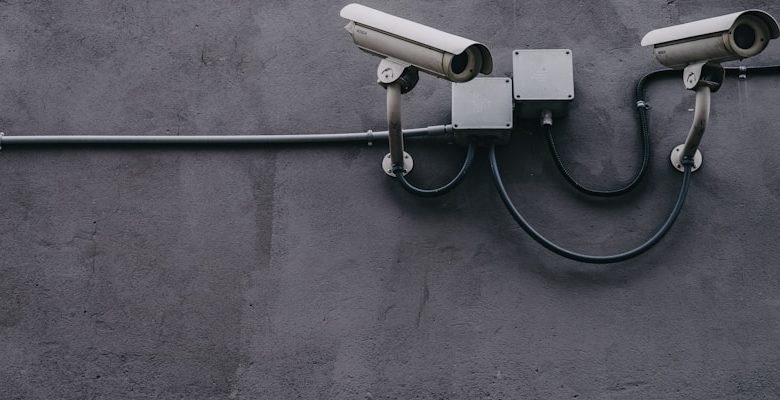Understanding the Legal Implications of Private Key Security

- The Basics of Private Key Security
- Why Private Key Security is Crucial in the Digital Age
- Legal Responsibilities in Protecting Private Keys
- Potential Consequences of Private Key Compromise
- Best Practices for Safeguarding Private Keys
- Navigating the Regulatory Landscape of Private Key Security
The Basics of Private Key Security
When it comes to private key security, it is essential to understand the basics to ensure the safety of your digital assets. A private key is a cryptographic key that is used to decrypt and sign information. It is crucial to keep your private key secure to prevent unauthorized access to your sensitive data. Here are some key points to consider:
- Keep your private key confidential and never share it with anyone.
- Store your private key in a secure location, such as a hardware wallet or encrypted USB drive.
- Use a strong password to protect your private key from brute force attacks.
- Regularly back up your private key to prevent data loss in case of hardware failure.
- Avoid storing your private key on cloud-based services or unsecured devices.
By following these basic security practices, you can help protect your private key from unauthorized access and keep your digital assets safe and secure. Remember, the security of your private key is crucial in the digital world, so always prioritize its protection.
Why Private Key Security is Crucial in the Digital Age
In the digital age, private key security is more crucial than ever before. Private keys are essential for protecting sensitive information and ensuring secure communication online. Without proper security measures in place, private keys can be easily compromised, leading to unauthorized access to confidential data.
Ensuring the security of private keys is vital for individuals and organizations alike. In the wrong hands, private keys can be used to impersonate users, commit fraud, and gain access to valuable resources. This can result in significant financial losses, reputational damage, and legal consequences.
By implementing robust security protocols, such as encryption, multi-factor authentication, and regular key rotation, individuals and organizations can mitigate the risks associated with private key compromise. It is essential to stay informed about the latest security threats and best practices to protect private keys effectively.
In conclusion, private key security is a critical aspect of cybersecurity in the digital age. By prioritizing the protection of private keys, individuals and organizations can safeguard their sensitive information, maintain trust with their customers, and avoid costly legal implications. Remember, prevention is always better than cure when it comes to private key security.
Legal Responsibilities in Protecting Private Keys
When it comes to protecting private keys, it is crucial to understand the legal responsibilities that come with it. Private keys are sensitive pieces of information that grant access to digital assets and should be safeguarded at all costs. Failure to protect private keys can result in unauthorized access to sensitive information, leading to potential financial loss or data breaches.
One of the primary legal responsibilities in protecting private keys is to ensure that they are stored securely. This means using encryption methods to secure private keys and storing them in a safe location to prevent unauthorized access. Additionally, it is essential to regularly update and rotate private keys to minimize the risk of them being compromised.
Another legal responsibility is to disclose the loss or theft of private keys promptly. In the event that private keys are lost or stolen, it is crucial to report the incident to the appropriate authorities and take immediate action to mitigate any potential damage. Failure to disclose the loss of private keys can result in legal consequences and liability.
Furthermore, it is important to establish clear policies and procedures regarding the use and storage of private keys to ensure compliance with legal regulations. By implementing robust security measures and regularly reviewing and updating security protocols, organizations can protect their private keys and minimize the risk of security breaches.
In conclusion, understanding the legal responsibilities in protecting private keys is essential for safeguarding sensitive information and preventing unauthorized access. By taking proactive measures to secure private keys and comply with legal regulations, organizations can protect themselves from potential legal consequences and financial loss.
Potential Consequences of Private Key Compromise
The potential consequences of a private key compromise can be severe and wide-ranging. If a malicious actor gains access to your private key, they could potentially decrypt sensitive data, impersonate you or your organization, and engage in fraudulent activities. This could result in financial losses, damage to your reputation, and legal liabilities.
Furthermore, a private key compromise could lead to regulatory non-compliance, as many industries have strict requirements for protecting sensitive information. In the event of a data breach caused by a compromised private key, you may face fines, lawsuits, and other legal consequences.
It’s important to take proactive measures to secure your private key and prevent unauthorized access. This includes using encryption, implementing access controls, and regularly updating your security protocols. By prioritizing private key security, you can mitigate the risk of a compromise and protect your data, your business, and your reputation.
Best Practices for Safeguarding Private Keys
When it comes to safeguarding private keys, there are several best practices that individuals and organizations should follow to ensure the security of their assets. One of the most important things to remember is to never share your private key with anyone else. Keeping your private key confidential is crucial in preventing unauthorized access to your digital assets.
Another best practice is to store your private key in a secure location, such as a hardware wallet or encrypted USB drive. By keeping your private key offline, you can reduce the risk of it being compromised by hackers or malware. It’s also a good idea to regularly back up your private key in case of loss or damage to your primary storage device.
Additionally, using strong encryption methods to protect your private key can help enhance its security. Implementing multi-factor authentication and regularly updating your security protocols are also recommended to prevent unauthorized access to your private key.
Overall, following these best practices can help mitigate the risk of private key theft and ensure the security of your digital assets. By taking proactive measures to safeguard your private key, you can minimize the potential legal implications associated with unauthorized access to your assets.
Navigating the Regulatory Landscape of Private Key Security
In today’s digital age, safeguarding private keys is crucial for individuals and organizations alike. When it comes to navigating the regulatory landscape surrounding private key security, it is essential to understand the legal implications involved.
One key aspect to consider is compliance with data protection regulations such as the General Data Protection Regulation (GDPR) and the California Consumer Privacy Act (CCPA). These regulations require entities to implement adequate security measures to protect sensitive data, including private keys. Failure to comply with these regulations can result in severe penalties and legal consequences.
Additionally, industries such as finance and healthcare have their own set of regulations that dictate how private keys should be managed and protected. For example, the Payment Card Industry Data Security Standard (PCI DSS) requires organizations that handle credit card information to secure their private keys to prevent data breaches and fraud.
Furthermore, legal frameworks such as cryptographic export controls and intellectual property laws can impact how private keys are stored and transmitted across borders. It is essential to be aware of these regulations to avoid legal complications and ensure compliance with international laws.
Overall, understanding the regulatory landscape of private key security is critical for maintaining legal compliance and protecting sensitive information. By staying informed and implementing best practices, individuals and organizations can mitigate risks and safeguard their assets effectively.



